Doctor of Nursing Practice: Advanced Practice
Lead With Clinical Confidence and Strategic Insight
Deepen Your Clinical Expertise. Broaden Your Impact.
Antioch University’s Doctor of Nursing Practice: Advanced Practice Track is for nurse practitioners and advanced practice registered nurses who want to expand their clinical influence, improve patient outcomes, and lead evidence-based innovations in care. This flexible, online program is tailored for APRNs ready to elevate their role in a rapidly changing healthcare landscape, combining advanced practice mastery with systems-level leadership and population-focused impact.
Program Overview
The Advanced Practice track strengthens your expertise in complex care delivery while preparing you to lead innovation in clinical settings. Rooted in Antioch’s commitment to health equity, inclusion, and social responsibility, this track allows APRNs to refine their practice and expand their leadership capacity.
This fully online format is designed for NPs, CNSs, CNMs, and CRNAs with MSN degrees. The program has a six-semester completion timeline (2 years) or a part-time 3-year option. Students complete their studies with a practice-based capstone project focused on their clinical focus.
Key Competency Areas:
- Patient-centered, trauma-informed systems of care.
- Advanced evidence-based clinical leadership
- Care delivery model assessment and innovation
- Outcome measurement and continuous improvement
- Interprofessional collaboration and advocacy
The Doctor of Nursing Practice program at Antioch University is pursuing initial accreditation by the Commission on Collegiate Nursing Education (http://www.ccneaccreditation.org). Applying for accreditation does not guarantee that accreditation will be granted.
Licensure
This program is NOT designed to lead to state licensure.

Elevating Your Nursing Career with a Proven Legacy
As Proud Co-Founder of the Coalition for the Common Good, Antioch University offers a program with a rich tradition of excellence, honed over 45 years by dedicated nursing professionals. Formerly anchored at Otterbein University, this initiative now thrives at Antioch, continuing a legacy of quality and practical expertise. Benefit from our flexible, student-centered graduate model, designed to empower you with clinical confidence and personalized support, ensuring you're prepared to excel in your nursing practice.
Degree Requirements
Six-semester completion timeline (2 years) or with a part-time 3-year option.
Graduates of the Advanced Practice track are positioned to lead care transformation across specialties and settings, whether in advanced clinical roles, leadership within provider teams, or as mentors and educators.
Career pathways include:
- Lead Advanced Practice Provider (APP)
- Clinical Director or Practice Administrator
- Policy Advocate for APRNs
- Healthcare Consultant or Quality Strategist
- DNP-Prepared Educator in APRN Programs
- Specialty-focused Clinical Leader (e.g., Cardiology, Mental Health, Women’s Health)
Program Details
Antioch University’s Department of Nursing is committed to quality nursing education that uses a holistic caring framework to promote excellence and safe healthcare. We encourage the personal and professional development of faculty, staff, and students, as well as an appreciation for diverse perspectives and humane values. Our goal is to prepare lifelong learners committed to the profession and the community, and to meeting society’s changing healthcare needs.
- Lifelong learning
- Holistic care
- Diversity, inclusion, access
- Purposeful clinical experiences
- Integrity
- Develop competent nursing professionals who can integrate and synthesize knowledge from relevant fields of study to provide safe, high-quality, patient-centered care to diverse individuals, families, groups, and populations.
- Prepare graduate nurses and healthcare professionals for intentional collaboration with other health professionals and healthcare stakeholders to promote optimal, equitable health outcomes that foster social justice in the health promotion and disease management for marginalized populations.
- Equip graduate nurses and healthcare professionals to lead in complex health systems, creating interprofessional partnerships while reflecting on self-bias to pursue personal and professional development while advocating for all humanity.
- Cultivate ethical health professionals that use a variety of informatic technologies to generate, analyze, and synthesize knowledge to improve health and transform healthcare.
Student Learning Outcomes
- Integrate nursing science with knowledge from the natural and social sciences as a basis for the highest level of nursing practice for diverse populations. (E1)
- Provide organizational and systems leadership in advanced nursing practice roles to improve marginalized patient and healthcare outcomes, through advocacy and implementation of management and quality improvement strategies. (E5)
- Provide leadership for evidence-based practice, through translation of research for practice, dissemination of research findings, application of research findings for all populations, implementation of quality improvement methodologies, evaluation of practice outcomes, and participation in collaborative research. (E4)
- Demonstrate proficiency in the utilization and evaluation of information systems/technology resources for knowledge application, management of individual and aggregate data, and quality improvement for all marginalized populations. (E8)
- Provide leadership in the analysis, development, implementation, and evaluation of healthcare policies, congruent with advocacy for social justice, equity, and ethics in global healthcare. (E7, E10)
- Employ effective communication, collaboration, and leadership skills with individuals, groups, and teams to facilitate problem solving and team functioning for equitable healthcare and healthcare delivery to marginalized populations. (E6)
- Analyze epidemiological, bio-statistical, environmental, and other appropriate diverse data for developing, implementing, and evaluating clinical prevention and population health interventions. (E2, E3)
- Demonstrate advanced levels of clinical judgment in designing, implementing, and evaluating equitable therapeutic interventions to improve patient and/or healthcare outcomes. (E2)
- Implement meaningful change in the areas of legal, ethical, economic, and professional functions of advanced nursing practice roles while advocating for all humanity. (E9, E10)
- Integrate caring behaviors and patterns, including cultural competence and attention to underserved regional and global individuals and groups, into advanced nursing practice roles. (E3)
Faculty Spotlights

Deana Batross, DNP, RN, FNP-BC, PMHNP-BC
Director

Diane White, PhD, RN
Dean

Regina Prusinski, DNP, CPNP-AC, FNP-BC
Chair
How to Apply
Admission Criteria
- Graduate degree in nursing from an institution of higher education that is fully accredited by the appropriate regional accrediting agency, and from an ACEN- or CCNE-accredited graduate nursing program.
- A current, valid, and unrestricted license as a Registered Nurse in the U.S.. In addition, an applicant must not have had a previous revocation, denial, suspension, or restriction of their license from any state or country. Current unrestricted licensure as a Registered Nurse in the state where the clinical and immersion experiences, as well as the practice project, will be conducted.
- Minimum of one (1) year paid clinical work experience within the past three years as a Registered Nurse before the application deadline, documented on the submitted resume. Clinical work experience must include direct care in a public health, community, hospital, or ambulatory care setting that serves patients across the life span.
- Evidence of capacity for graduate study.
- A blended cumulative grade point average of 3.0 or higher on a 4.0 scale for all previous coursework on the submitted transcripts;
- A Science GPA of 3.0 or higher on a 4.0 scale comprising grades in anatomy, physiology, pathophysiology, microbiology, statistics, and chemistry courses.
- Completion of an undergraduate- or graduate-level statistics course with a grade of B or better.
- Positive professional recommendations.
Application Requirements
- Complete the online admissions application, including:
- Optional Personal Essay: Summarize your professional background; Describe past experiences and reflections that have influenced these goals; and discuss professional and career goals, and how these goals can be achieved in the Doctor of Nursing Practice program, as well as ideas for the final scholarly project. The essay should be carefully planned, written, and edited by the applicant.
- Professional resume. Also include leadership activities, scholastic awards, nursing organizational memberships, and community service, as applicable.
- Evidence of licensure and certification, if any. Include professional licensure numbers and the licensing state, and a copy of the certificate issued by your national board certification body. The Graduate School will verify licensure and certification, which will be added to the student's file.
- Submit official transcripts from all colleges or universities where you earned a degree or certificate (A cumulative GPA of 3.0 or higher is preferred). Email to [email protected] or mail to: Antioch University, Admissions Office, 900 Dayton Street, Yellow Springs, Ohio 45387
- Three letters of recommendation are required from people who are in a position to evaluate your professional (e.g., clinical supervisor, Peer (RN), other clinician, and academic (e.g., professor) work. The person making the recommendation may not be related to you.
- Interview with the Nursing Program faculty if needed. This interview will be conducted via Zoom (video conferencing).
- Students must submit documentation of meeting health requirements – including completion of the American Heart Association Basic Life Support (BLS) curriculum – prior to starting classes, and must submit documentation of keeping health requirements current throughout their course of study.
Optional: If you do not feel as if your academic transcript(s) reflect your current ability to be successful as a graduate student, please be sure to highlight a plan for being successful in this program.
All application materials submitted become part of an applicant’s file and cannot be returned.
Application Deadlines
| Semester | Application Deadlines |
|---|---|
| Spring | November 1 |
| Fall | July 1 |
| Please review the Academic Calendar for additional details. | |
If you have any questions during the process, please do not hesitate to contact us at [email protected]. Our faculty and staff are here to assist you throughout the application process.
Tuition
| Program | Cost |
|---|---|
| DNP (All Concentrations) | $765 per semester hour |
| MSN (All Concentrations) | $665 per semester hour |
| Certificates | Contact Admissions for Details |
| View the Cost of Attendance Components | |
Financial Aid
Many students finance their education through some form of financial aid. You may not be sure which federal, state, public, and private aid packages – such as loans, scholarships, and grants – are right for you. Our staff is here to help you so you can focus on what’s most important: beginning your academic program.
Antioch University is proud to partner with several schools and employers to offer scholarships and/or special educational benefits to employees, students, and alumni of select partner institutions. To learn more about these scholarships and to find out if you are eligible, talk with Admissions.

Start your Antioch Journey
Take your next step - talk to our admissions team to find the right program for you.



